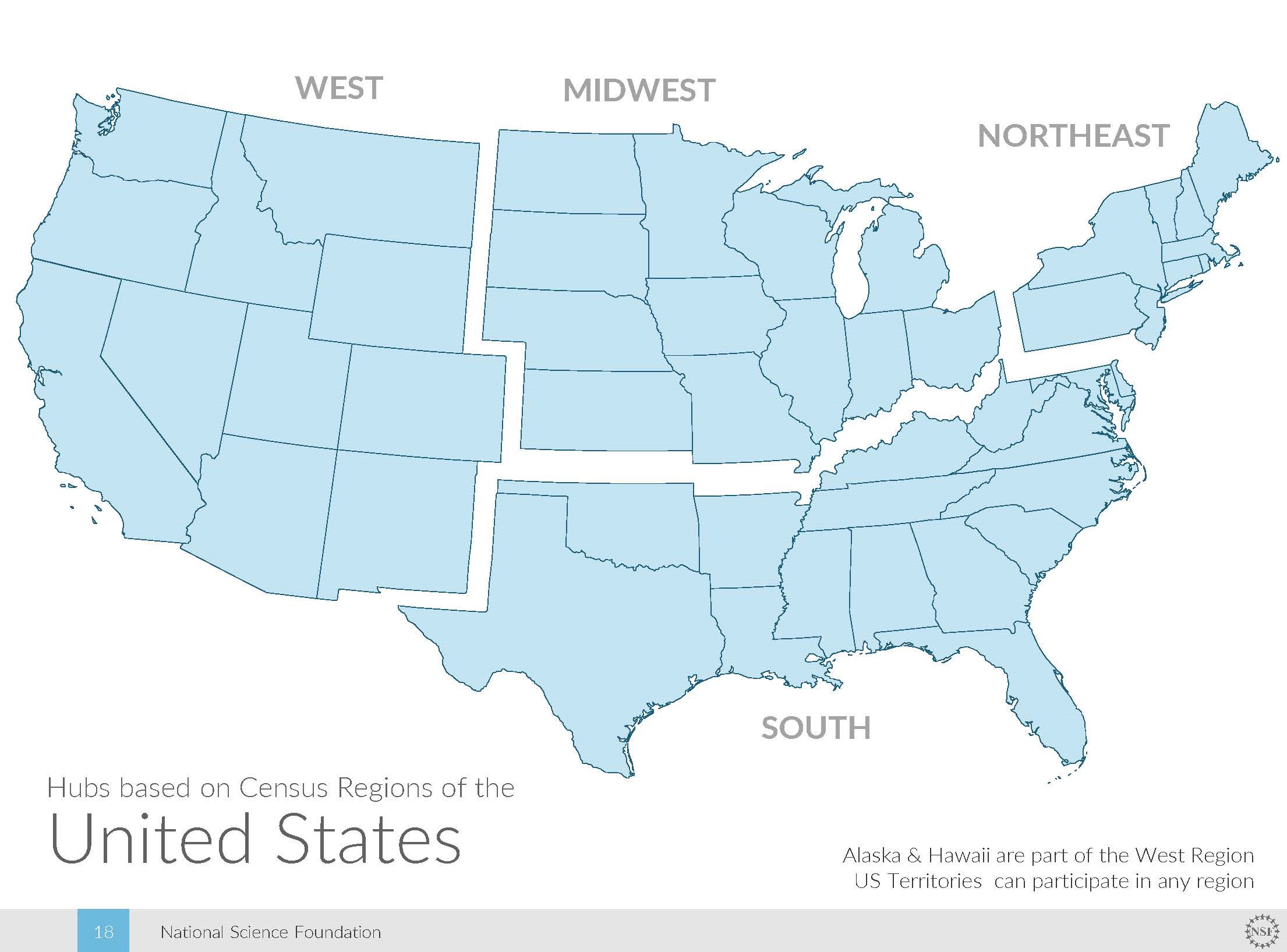

This week, the National Science Foundation (NSF) made some big announcements in Big Data, which will not only improve our ability to extract knowledge and insights from large and complex collections of data, but also help accelerate the pace of discovery in science and engineering, strengthen our national security, and fuel the growth and development of Smart Cities in America (see here for more on that effort).
Big Data Hubs
As a part of the Administration’s Big Data Research and Development Initiative and to accelerate the emerging field of data science, NSF announced four awards this week, totaling more than $5 million, to establish four Big Data Regional Innovation Hubs (BD Hubs) across the nation.
Covering all 50 states and including commitments from more than 250 organizations—from universities and cities to foundations and Fortune 500 corporations—the BD Hubs constitute a "big data brain trust" that will conceive, plan, and support big data partnerships and activities to address regional and national challenges.
The four BD Hubs divide the U.S. into regional collaborations, each focused on different Big Data challenges:
- The South Hub, encompassing 16 states and the District of Columbia, will be jointly coordinated by Georgia Institute of Technology and the University of North Carolina. Initial plans include pursuing regional priorities such as healthcare and health-related disparities, coastal hazards, industrial big data, materials and manufacturing, and habitat planning.
- The Northeast Hub, containing 9 states, will be coordinated by Columbia University. Priority areas identified by this BD Hub include energy, finance, data science for education, and climate and the environment.
- The Midwest Hub covers 12 states and will be coordinated by the University of Illinois at Urbana-Champaign. Included among its priority areas are agriculture; the food, energy, and water nexus; and smart cities. It will also work closely with the National Data Service, another data-centric consortium.
- The West Hub covers 13 states, including Alaska and Hawaii. It will be jointly coordinated by the University of California, San Diego, the University of California, Berkeley, and the University of Washington and will focus on priority areas including, big data technologies and data-intensive discovery, managing natural resources, and hazards and precision medicine.
More information about the BD Hubs can be found here.
Big Data Spokes
In addition to the BD Hubs, NSF also announced this week the release of a new solicitation for projects that will leverage the BD Hubs’ data – the BD Spokes initiative. Each BD Spoke will focus on a specific BD Hub priority area and address one or more of three key issues: improving access to data, automating the data lifecycle, and applying data science techniques to solve domain science problems or demonstrate societal impact.
BD Hubs leadership meeting
The announcement of the BD Hubs awards and BD Spokes program solicitation coincides with the first national stakeholders meeting of the BD Hubs this week (November 3-5) in Arlington, Virginia.
The last day of this meeting includes two public webinars: one at which BD Hubs representatives are discussing their plans, as well as mechanisms for governance and coordination among BD Hubs stakeholders; and another, held in conjunction with the National Data Science Organizer's Workshop, at which participants are discussing the role of BD Hubs in engaging with grassroots data science organizations—such as meet-up groups, non-profits, and other data science consortia—as they make the most of the opportunities afforded by big data. We encourage all to tune in!
Connecting stakeholders across sectors—government, academia, or industry—is crucial to maintaining and expanding the growing national Big Data innovation ecosystem. The Big Data Regional Innovation Hubs and Spokes will play a central role in ensuring these connections flourish.
Tom Kalil is Deputy Director for Technology and Innovation at the White House Office of Science and Technology Policy.
Jim Kurose is Assistant Director for Computer and Information Science and Engineering at the National Science Foundation.
Fen Zhao is Staff Associate in Strategic Innovation at the National Science Foundation.

